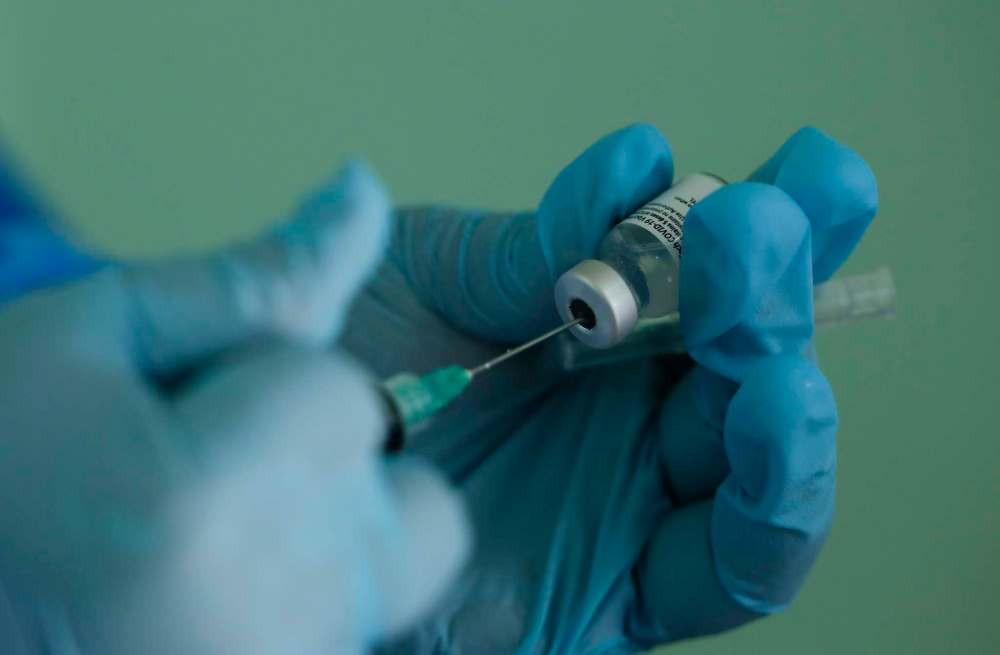We should question competence of health-care workers who won’t get vaccine
Advertisement
Read this article for free:
or
Already have an account? Log in here »
To continue reading, please subscribe:
Monthly Digital Subscription
$0 for the first 4 weeks*
- Enjoy unlimited reading on winnipegfreepress.com
- Read the E-Edition, our digital replica newspaper
- Access News Break, our award-winning app
- Play interactive puzzles
*No charge for 4 weeks then price increases to the regular rate of $19.00 plus GST every four weeks. Offer available to new and qualified returning subscribers only. Cancel any time.
Monthly Digital Subscription
$4.75/week*
- Enjoy unlimited reading on winnipegfreepress.com
- Read the E-Edition, our digital replica newspaper
- Access News Break, our award-winning app
- Play interactive puzzles
*Billed as $19 plus GST every four weeks. Cancel any time.
To continue reading, please subscribe:
Add Free Press access to your Brandon Sun subscription for only an additional
$1 for the first 4 weeks*
*Your next subscription payment will increase by $1.00 and you will be charged $16.99 plus GST for four weeks. After four weeks, your payment will increase to $23.99 plus GST every four weeks.
Read unlimited articles for free today:
or
Already have an account? Log in here »
Hey there, time traveller!
This article was published 15/10/2021 (1516 days ago), so information in it may no longer be current.
There’s nothing new about vaccine requirements for health-care professionals in Manitoba. As students, most of them have to be immunized against a wide range of communicable diseases before they enter the workforce. As employees, many have had to show proof of vaccination for years.
So why all the fuss about having to get vaccinated against COVID-19?
Since 2006, all new employees at the Winnipeg Regional Health Authority who have direct contact with patients and clients have to be immunized against rubella, measles, hepatitis B, and chicken pox (or undergo testing to demonstrate immunity). The list at Shared Health is similar and includes mumps and diphtheria.

It’s a condition of employment; no shots, no job.
From the beginning of their training, health-care workers not only learn about the importance of immunization and how it has eradicated (or nearly eliminated) life-threatening diseases around the world, they have to get inoculated themselves.
At the Rady Faculty of Health Sciences at the University of Manitoba, all students — including those in medicine, nursing, pharmacy, dentistry, occupational therapy and respiratory therapy — are required (with few exceptions) to be immunized against all major vaccine-preventable diseases.
They have to sign an immune status consent form that allows the university to access their immunization records and agree that “maintaining an accurate and up-to-date immune status record is an important responsibility of being a student, to protect my own health, as well as the health of the patients with whose care I will be involved.”
Failure to get immunized “may result in the student being barred from clinical activities that involving patients, and may mean the student cannot complete the program.”
There are no “personal choice” options. If you want to work in health care, you have to follow evidence-based science and get vaccinated.
Frankly, I question the medical competency of any health-care worker who chooses not to get immunized, including against COVID-19. I’m not sure I want someone looking after patients who has trouble understanding the basics of vaccine science. If they can’t grasp that, what other medical facts do they struggle with? (And how does that affect their ability to provide quality care to patients?)
The Quebec Order of Nurses — the licensing body for nurses in Quebec — has a clear position on that. The organization announced this week it plans to suspend the licence of any nurse who is not vaccinated against COVID-19.
Health care staff are at the greatest risk of any profession of contracting communicable diseases and spreading them to others. That includes transmitting viruses such as SARS-CoV-2 to patients, many of whom have weakened immune systems. Hospitals and other health-care facilities are crawling with infectious disease. The risks of transmission are extremely high, especially among the unvaccinated.
By contrast, the risks of serious adverse effects from vaccines are very low. As of Oct. 1, only 4,675 serious side-effects from over 56 million doses of COVID-19 vaccines administered in Canada (0.008 per cent) have been reported, the Public Health Agency of Canada has reported. Not all were necessarily caused by the vaccine.
Health-care workers know, or ought to know, the benefits of the COVID-19 vaccine far outweigh the risks. If they do know, and still refuse to get vaccinated, they’ve decided to enjoy the collective benefits of vaccines (eventually, most people will be protected from COVID-19 through herd immunity, including the unvaccinated), while taking no risks themselves to help achieve the broader goal. Talk about the height of selfishness.
Health-care workers in Manitoba have until Monday to get their second dose of the COVID-19 vaccine (or undergo regular testing), or face being put on unpaid leave. It’s astonishing it had to come to this. It’s hard to imagine how anyone trained in the medical field would require that kind of ultimatum to protect themselves and the patients they serve from a potentially deadly disease.
tom-brodbeck@freepress.mb.ca

Tom has been covering Manitoba politics since the early 1990s and joined the Winnipeg Free Press news team in 2019.
Our newsroom depends on a growing audience of readers to power our journalism. If you are not a paid reader, please consider becoming a subscriber.
Our newsroom depends on its audience of readers to power our journalism. Thank you for your support.


